Navigating Legal Reporting as a Spiritual Caregiver


Spiritual caregivers operate at the intersection of compassion, ethics, and law. Their role in providing holistic care encompasses addressing patients' spiritual needs while adhering to legal reporting requirements, especially when it comes to safeguarding vulnerable populations such as children and elders. This article explores the complex responsibilities of spiritual caregivers navigating mandatory reporting laws, ethical standards from professional organizations, and systemic procedures to protect individuals and remain compliant.
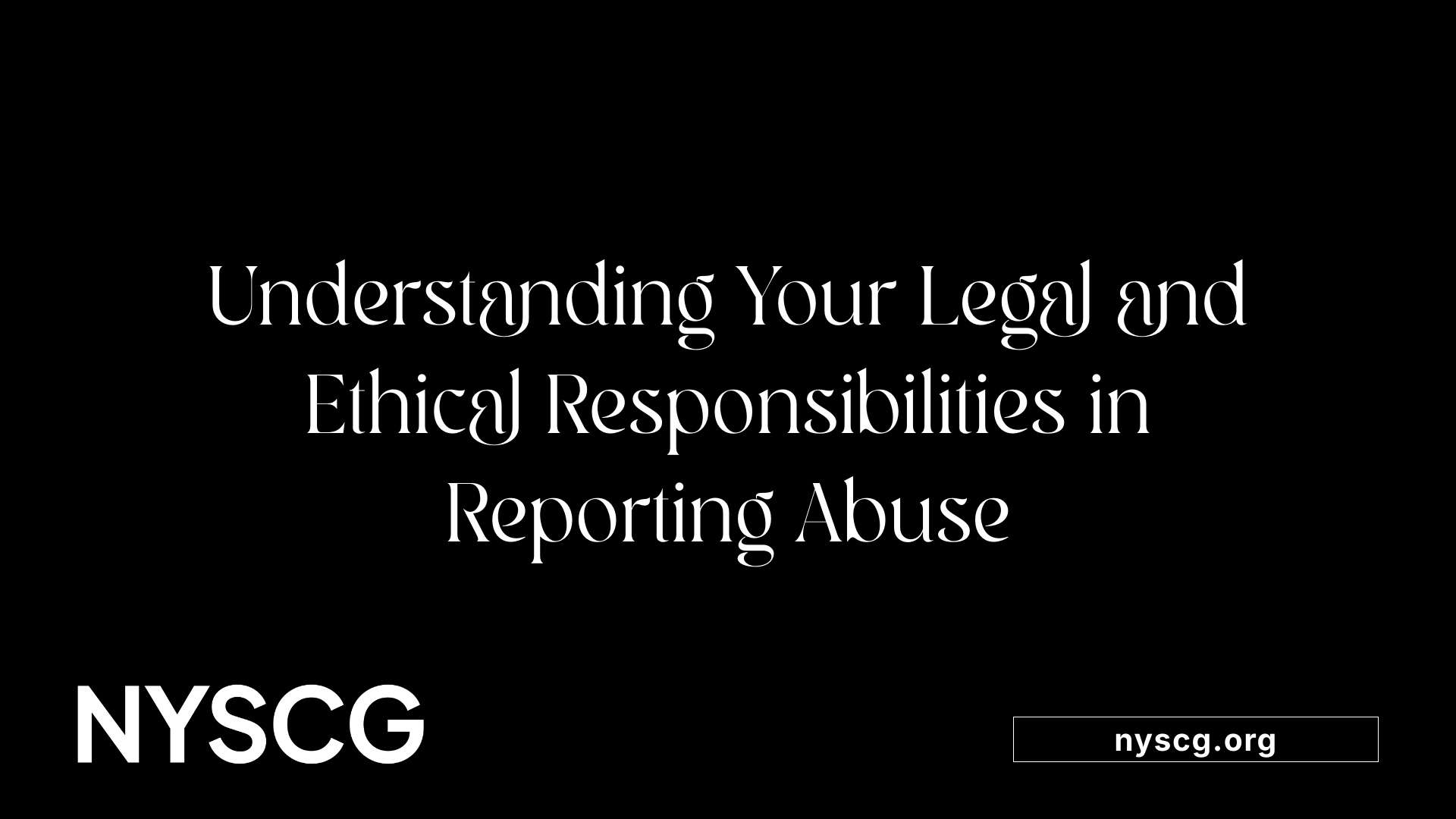
Spiritual caregivers, including clergy and chaplains, often find themselves at the intersection of legal obligations and ethical duties. Laws in different jurisdictions set specific requirements about when and how suspected abuse must be reported. For example, in California, clergy are generally protected from reporting sacramental confessions, respecting the confidentiality of these communications. Conversely, in Texas, all individuals, including clergy, are required to report suspected abuse without exceptions, highlighting the importance of understanding local laws.
From an ethical standpoint, caregivers are committed to beneficence—acting in the best interest of their clients—and non-maleficence—avoiding harm. Balancing these principles involves respecting client confidentiality while also protecting vulnerable individuals from harm. Confidentiality is a core value; however, it is not absolute in cases where the law mandates disclosure.
Caregivers should stay educated on relevant laws through ongoing training and establish clear organizational policies. Proper documentation of suspected abuse reports is critical to ensure legal compliance and protect the caregiver.
Failure to comply with mandatory reporting obligations can result in severe legal penalties, including fines and criminal charges. It can also lead to organizational liability, loss of trust, and harm to those in need. Consequently, integrating legal awareness with ethical considerations is vital in spiritual caregiving.
Overall, ethical practice involves assessing each situation carefully, knowing the legal statutes, and acting in a manner that safeguards the well-being of all parties involved. By doing so, spiritual caregivers uphold their moral duties while adhering to the law, maintaining trust, and fostering a safe environment for vulnerable populations.
Laws differ across states, creating unique obligations. For example:
| State | Clergy Reporting Laws | Exceptions | Notes |
|---|---|---|---|
| California | Required to report suspected abuse | Confessional privilege protected | Sacramental confession exceptions |
| Texas | Mandatory to report without exceptions | No exception for confessional privilege | All individuals, including clergy, must report |
| New York | Required to report | Confidential communications protected unless consent is given | Differentiates between general clergy and specific circumstances |
Understanding these variations is crucial for spiritual caregivers to fulfill their legal duties properly.
Confidentiality forms the foundation of trust in spiritual caregiving. However, legal mandates sometimes require disclosure of information to authorities, especially concerning suspected abuse. The confessional privilege, recognized in some states, allows clergy and other professionals to keep certain communications private unless specific laws require reporting.
In states with absolute privilege, confessional disclosures are entirely protected, and reports cannot be made based solely on confessional information. In contrast, conditional privilege states allow reporting if certain conditions are met, such as imminent harm.
Legal exceptions aim to balance the confidentiality owed to clients with the necessity to protect vulnerable individuals. Caregivers must thoroughly understand their state's laws and organizational policies regarding confidentiality and reporting.
Ethical principles such as autonomy, beneficence, non-maleficence, and justice guide caregiving practice. Confidentiality supports autonomy and trust but must sometimes be overridden to prevent harm.
Caregivers should evaluate each case individually, considering the severity of suspected abuse, the potential harm of nondisclosure, and legal requirements. They should document their decision-making process and ensure actions align with both ethical standards and legal obligations.
By combining thorough knowledge of law with ethical sensitivity, spiritual caregivers can navigate complex situations, ensuring that they act in the best interests of their clients while complying with applicable legal standards.
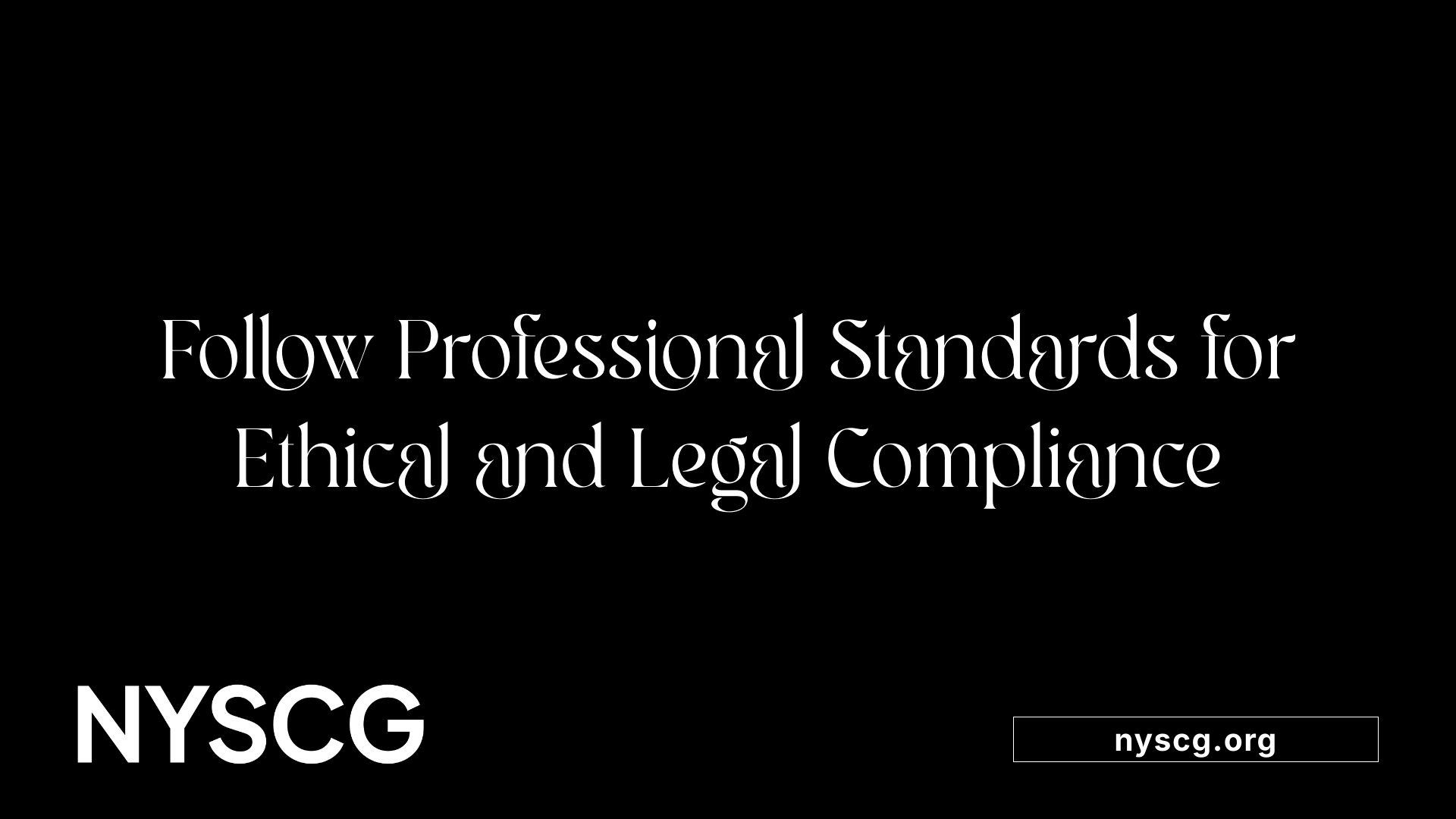
Professional organizations such as the Association of Professional Chaplains (APC), the National Association of Catholic Chaplains (NACC), and the National Association of Veteran Affairs Chaplains (NAVAC) establish comprehensive ethical standards for spiritual caregivers. These guidelines emphasize the importance of balancing the duty to protect clients and vulnerable populations with the need to respect confidentiality and cultural diversity.
A fundamental principle across these organizations is that spiritual caregivers must be well-versed in legal requirements related to abuse, neglect, and harm. They are encouraged to conduct thorough and holistic spiritual assessments, which include evaluating signs of physical, emotional, or sexual abuse as well as neglect. Proper documentation of findings is essential, with an emphasis on responsible and accurate record-keeping that supports legal and ethical responsibilities.
Responsible documentation should focus on objective observations, responses, and relevant disclosures, always maintaining confidentiality yet being prepared to share information with authorized entities as required by law.
Cultural sensitivity is also a core element, urging caregivers to be aware of and respect diverse spiritual, cultural, and religious backgrounds during assessments and reporting procedures. Ongoing professional development is recommended to keep abreast of evolving laws, ethical standards, and best practices.
These organizations advocate for ongoing training in legal and ethical responsibilities, including understanding the limits and protections associated with client confidentiality, and the circumstances under which reporting is mandatory. They stress the importance of interdisciplinary collaboration, ensuring spiritual care is integrated properly into whole-person care approaches.
In sum, the guidelines promote ethical decision-making rooted in respect, accountability, and competence. Spiritual caregivers are expected to act as responsible stewards of both their clients’ spiritual needs and their legal obligations, ensuring safety and well-being through responsible, culturally informed, and well-documented practice.
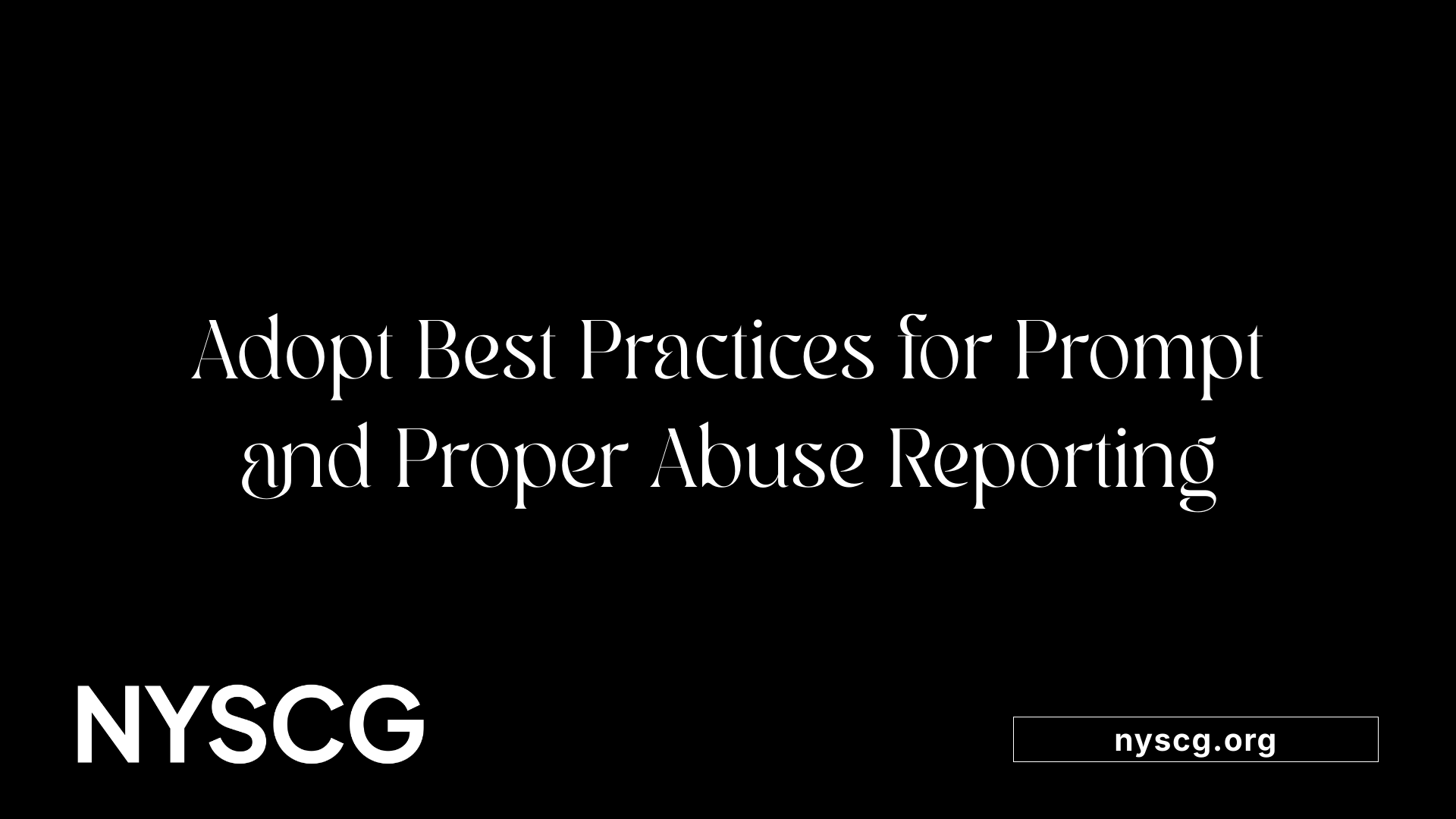
Professionals working in faith-based organizations and healthcare settings have a legal duty to report suspected abuse, neglect, or sexual misconduct promptly to protect vulnerable individuals. This obligation generally requires reporting suspicions immediately, often within 24 hours, to appropriate authorities such as child protective services, law enforcement, or adult protective agencies. Timely reporting is crucial to ensure that cases are investigated swiftly and victims receive necessary assistance.
In addition to timeliness, thorough documentation of suspicions and incidents is a vital component of responsible reporting. Accurate records should include details like observed injuries, behavioral changes, statements made by the victim or witnesses, and the circumstances surrounding the suspected abuse. Proper documentation supports investigations and legal proceedings, helping authorities take appropriate action.
Training and clear organizational policies are essential to equip staff, volunteers, and clergy with the knowledge and skills to recognize warning signs and understand reporting procedures. Regular training programs help maintain awareness of legal mandates, reinforce the importance of prompt action, and clarify the scope of reporting requirements, including the boundaries of religious exemptions.
In faith and healthcare environments, practitioners should be familiar with legal mandates and understand that religious beliefs do not exempt individuals or organizations from reporting abuse. Policies should reflect a zero-tolerance stance on abuse, emphasizing that safeguarding vulnerable populations is a collective responsibility.
Conferences and ongoing education should focus on cultural competence and bias awareness to ensure equitable and sensitive responses to reports from diverse populations. Confidentiality protections are critical; while reports must be made openly to authorities, information shared should be limited to what is necessary, maintaining the privacy and dignity of victims.
In summary, best practices involve being proactive through comprehensive training, adhering to legally mandated timelines, meticulously documenting suspicions and incidents, and fostering organizational cultures that prioritize safety. Working collaboratively with community partners and policymakers can further enhance prevention and response efforts, ultimately safeguarding those most at risk.
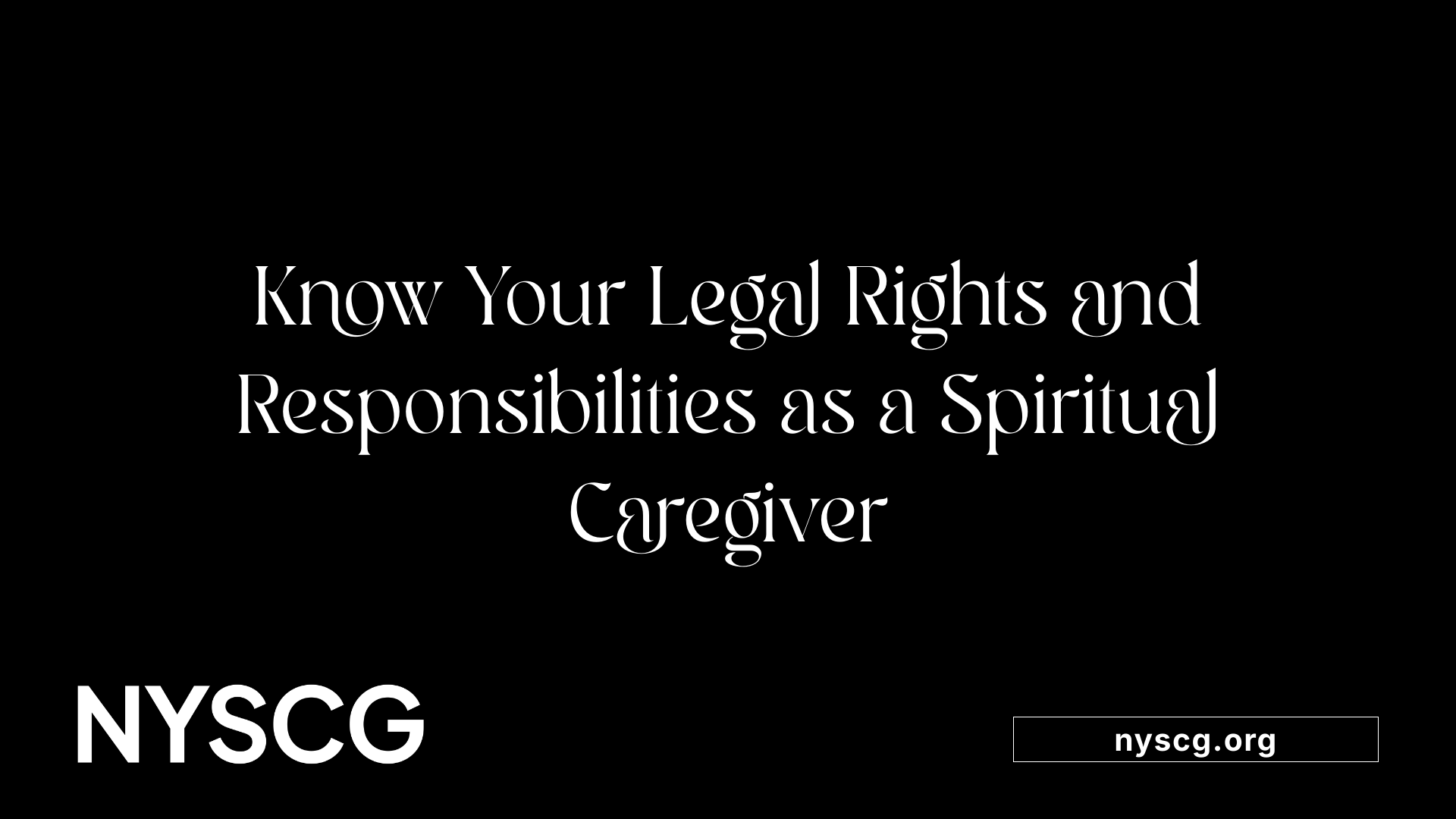
Spiritual caregivers, including clergy members and chaplains, operate within a landscape of legal rights and responsibilities that significantly influence how they handle suspected abuse cases. When they report in good faith, these professionals are generally protected from legal repercussions such as civil or criminal liability. These protections are vital because they encourage open reporting and allow caregivers to fulfill their duty of safeguarding vulnerable individuals without the fear of wrongful accusations or legal retaliation.
However, these rights are balanced by the obligation to report any suspected abuse or neglect, especially when mandated by law. Most states have legislation requiring certain professionals—such as healthcare providers, teachers, and clergy—to report suspected child abuse or neglect to authorities. The laws specify the circumstances that trigger reporting duties and outline the procedures for making reports.
An important factor that influences reporting obligations is the clergy-penitent privilege, which provides confidentiality for communications made during sacramental or confessional contexts. This privilege does not universally exempt clergy from reporting suspected abuse; many states have specific statutes overriding the privilege when child abuse or neglect is suspected. For example, California generally exempts confessional communications from mandatory reporting, allowing confidentiality to be maintained unless abuse is disclosed outside the confession. By contrast, Texas law removes such exemptions altogether, requiring all individuals, including clergy, to report suspected abuse regardless of confidentiality.
Mandated reporting laws integrate both legal directives and moral principles rooted in religious or ethical beliefs. These laws emphasize the importance of protecting children and vulnerable individuals and often recognize the moral duty of caregivers to act in cases of suspected harm.
In practice, spiritual caregivers must carefully navigate their roles, balancing legal protections with their ethical and spiritual responsibilities. They are expected to act responsibly, report suspicions promptly, and prioritize the safety and well-being of those at risk. Failure to report when legally obligated can lead to penalties such as fines, criminal charges, or professional discipline, while diligent reporting in good faith is typically protected and encouraged.
By understanding the complexities of their legal environment, including variations in state laws and the impact of confidentiality privileges, spiritual caregivers can better ensure they meet their duties responsibly. Ultimately, their ability to protect individuals and uphold ethical standards depends on an informed awareness of their legal rights and obligations—an essential component of their role within the broader framework of child and vulnerable adult protection.
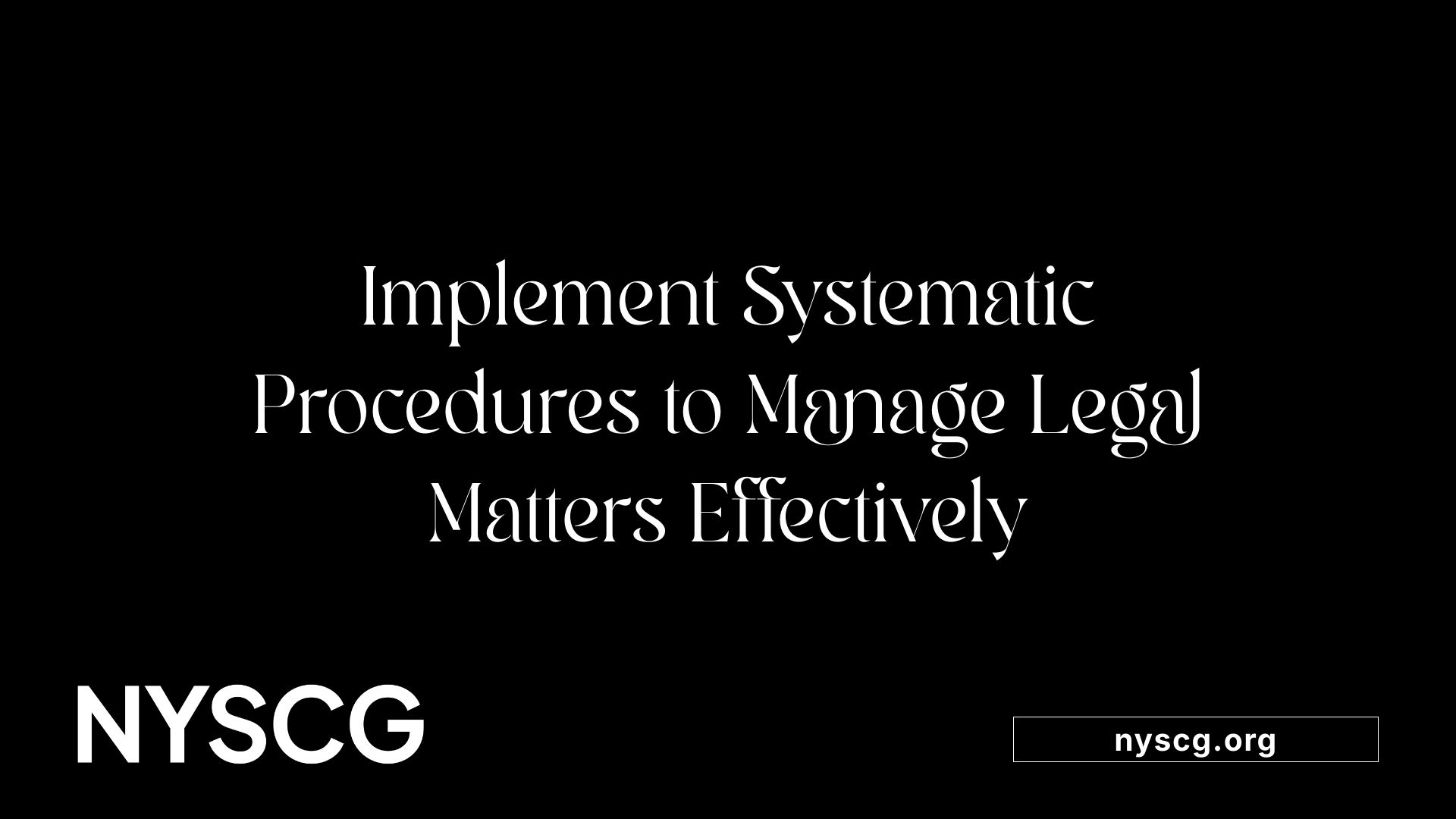
Effective caregiving demands thorough preparation, especially regarding legal management. Systemic procedures for overseeing legal matters include the careful completion and regular updating of essential documents central to caregiving responsibilities. These documents serve as legal tools that establish authority, define healthcare preferences, and safeguard against future disputes.
One foundational document is the power of attorney, which can be specific or broad, granting a trusted individual the authority to make financial or medical decisions on behalf of the patient. A healthcare power of attorney and living will specify treatment preferences and end-of-life wishes, ensuring that the patient's values are honored even if they become incapacitated.
State laws vary, so caregivers should familiarize themselves with local regulations concerning guardianship, probate procedures, and advance directives. In some cases, formal guardianship or conservatorship may be necessary if no prior legal preparations were made and the individual cannot make decisions independently.
Maintaining organized, secure records is crucial. This includes storing copies of powers of attorney, advance healthcare directives, guardianship orders, and any relevant court documents. These should be readily accessible during emergencies or legal assessments, such as hospital admissions or legal disputes.
To clarify roles and responsibilities, formal agreements like care contracts and personal care agreements are advisable. These documents outline specific duties, responsibilities, and boundaries, helping to prevent conflicts and misunderstandings.
Consulting legal professionals or utilizing trusted legal resources can enhance understanding of rights, protections, and procedural steps. Legal counsel can assist in creating tailored documents, navigating state-specific laws, and ensuring all necessary procedures are correctly followed.
Overall, adhering to these systemic procedures and maintaining thorough documentation form the backbone of effective legal management within caregiving. They provide clarity, protection, and peace of mind for both caregivers and their loved ones.
| Systemic Procedures | Key Documentation | Additional Details |
|---|---|---|
| Completing legal forms | Powers of attorney, advance directives | Establish authority and wishes |
| Updating documents regularly | Guardianship orders | Reflect living circumstances |
| Legal compliance with state laws | Guardianship and probate regulations | Vary by jurisdiction |
| Maintaining organized records | Secure storage of legal papers | Access during emergencies |
| Formal agreements (care contracts) | Personal care agreements | Clarify responsibilities |
| Consulting legal professionals | Legal advice and drafting | Ensure legality and appropriateness |
By following these systematic procedures, caregivers can confidently handle legal issues, protect their loved ones’ rights, and uphold legal compliance in all aspects of caregiving.
For spiritual caregivers, understanding and integrating legal and ethical responsibilities within their practice is essential to protect vulnerable populations and uphold their professional integrity. Staying informed about current laws, engaging in ongoing training, and maintaining meticulous documentation facilitate responsible caregiving and mitigate legal risks. As the landscape of spiritual care and legal reporting evolves, practitioners must balance their compassionate roles with compliance, ensuring that their service fosters trust, dignity, and safety for all individuals.
All you need is the will to make the world a better place.
New York State chaplain group inc. is a tax deductible organization with a federal tax Id number 92-383-4921